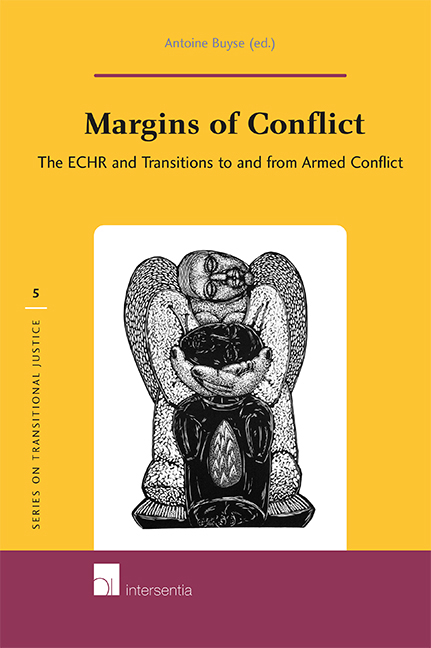Book contents
- Frontmatter
- Preface
- Contents
- Human Rights without Peace? The European Court of Human Rights and Conflicts Between High Contracting Parties
- Crisis Situations, Counter Terrorism and Derogation from the European Convention of Human Rights. A Threat Analysis
- Really Out of Sight? Issues of Jurisdiction and Control in Situations of Armed Conflict under the ECHR
- The Use of Interim Measures Issued by the European Court of Human Rights in Times of War or Internal Conflict
- Foretelling the future, facing the past. Hate speech and conflict situations under the ECHR
- The Duty to Take Preventive Operational Measures. An Adequate Legal Tool to Hold States Responsible in Enforced Disappearance Cases?
- Airborne or Bound to Crash? The Rise of Pilot Judgments and Their Appeal as a Tool to Deal with the Aftermath of Conflict
The Duty to Take Preventive Operational Measures. An Adequate Legal Tool to Hold States Responsible in Enforced Disappearance Cases?
Published online by Cambridge University Press: 16 December 2020
- Frontmatter
- Preface
- Contents
- Human Rights without Peace? The European Court of Human Rights and Conflicts Between High Contracting Parties
- Crisis Situations, Counter Terrorism and Derogation from the European Convention of Human Rights. A Threat Analysis
- Really Out of Sight? Issues of Jurisdiction and Control in Situations of Armed Conflict under the ECHR
- The Use of Interim Measures Issued by the European Court of Human Rights in Times of War or Internal Conflict
- Foretelling the future, facing the past. Hate speech and conflict situations under the ECHR
- The Duty to Take Preventive Operational Measures. An Adequate Legal Tool to Hold States Responsible in Enforced Disappearance Cases?
- Airborne or Bound to Crash? The Rise of Pilot Judgments and Their Appeal as a Tool to Deal with the Aftermath of Conflict
Summary
INTRODUCTION
Conflict situations, whether national or international, often go hand in hand with gross human rights violations. In fact, gross human rights violations occur most often in situations of conflict. One such violation is that of enforced disappearance. An enforced disappearance is the act by State agents, or with the indirect involvement of the State, of depriving someone of his liberty while at the same time denying this act or refusing to give information on the whereabouts or fate of this person. As a result, the person is outside any control other than that of the State authorities who detained him. One of the reasons why conflict situations are prone to enforced disappearances is that it is an effective instrument to eliminate opposition while at the same time creating unrest, fear and anguish among the population. Another reason is that this human rights violation generates impunity for the act. These consequences result from the very nature of an enforced disappearance, which is escaping accountability by cloaking the act in complete secrecy and intending to leave no traces of evidence behind. As a result, the perpetrators are hardly traceable. Establishing responsibility in conflict zones is even more challenging since many different actors, such as the State, groups acting with the acquiescence of the State, and belligerent groups may commit human rights violations or acts similar to such violations. As a consequence, the required standard of proof is difficult for relatives to attain. At the same time, it does not matter in essence for either the relatives of the disappeared or the victim himself who exactly is the perpetrator; the suffering and anguish is grave. The situation is aggravated significantly when the State authorities refuse to act diligently in their efforts to search for the disappeared person and bring the perpetrators to justice.
Enforced disappearance cases have come before the European Court of Human Rights (hereinafter: the European Court, or the Court) in respect of two countries: Turkey and Russia. The vast majority of these cases originated in the conflict zones of south-east Turkey and of Chechnya, respectively.
- Type
- Chapter
- Information
- Margins of ConflictThe ECHR and Transitions to and from Armed Conflict, pp. 153 - 174Publisher: IntersentiaPrint publication year: 2010



